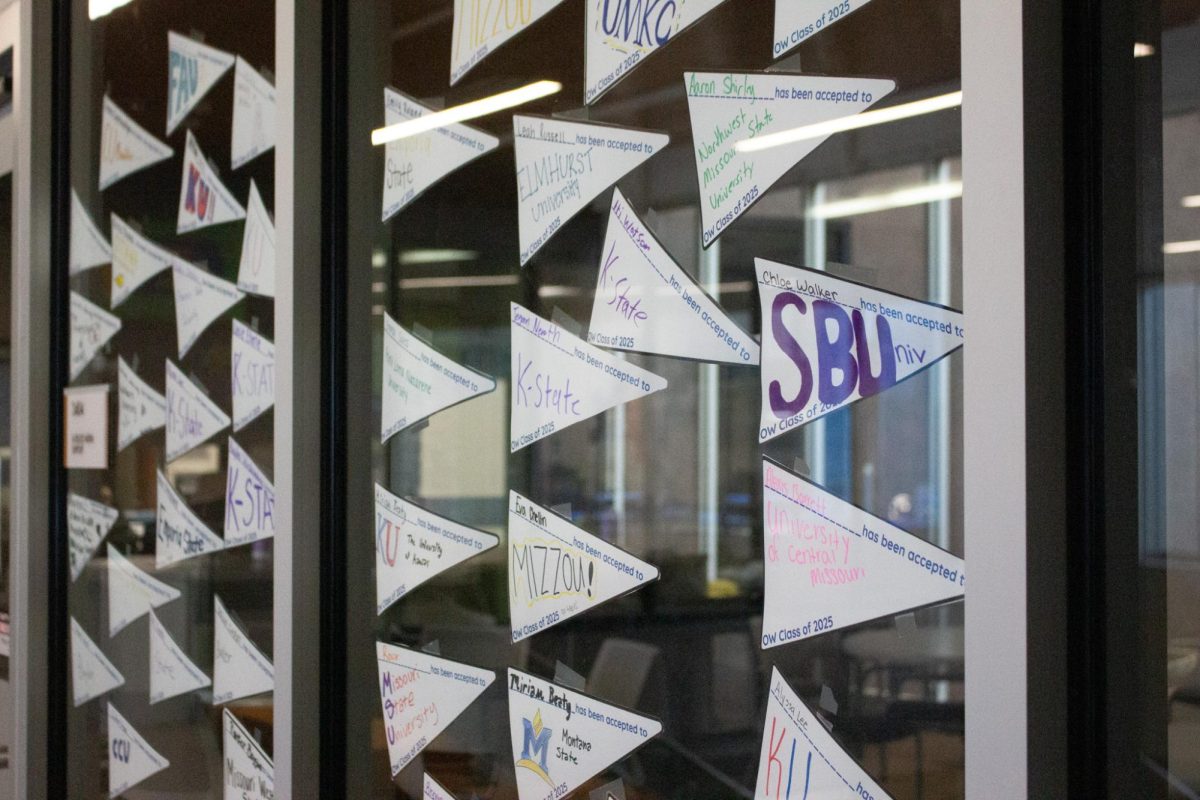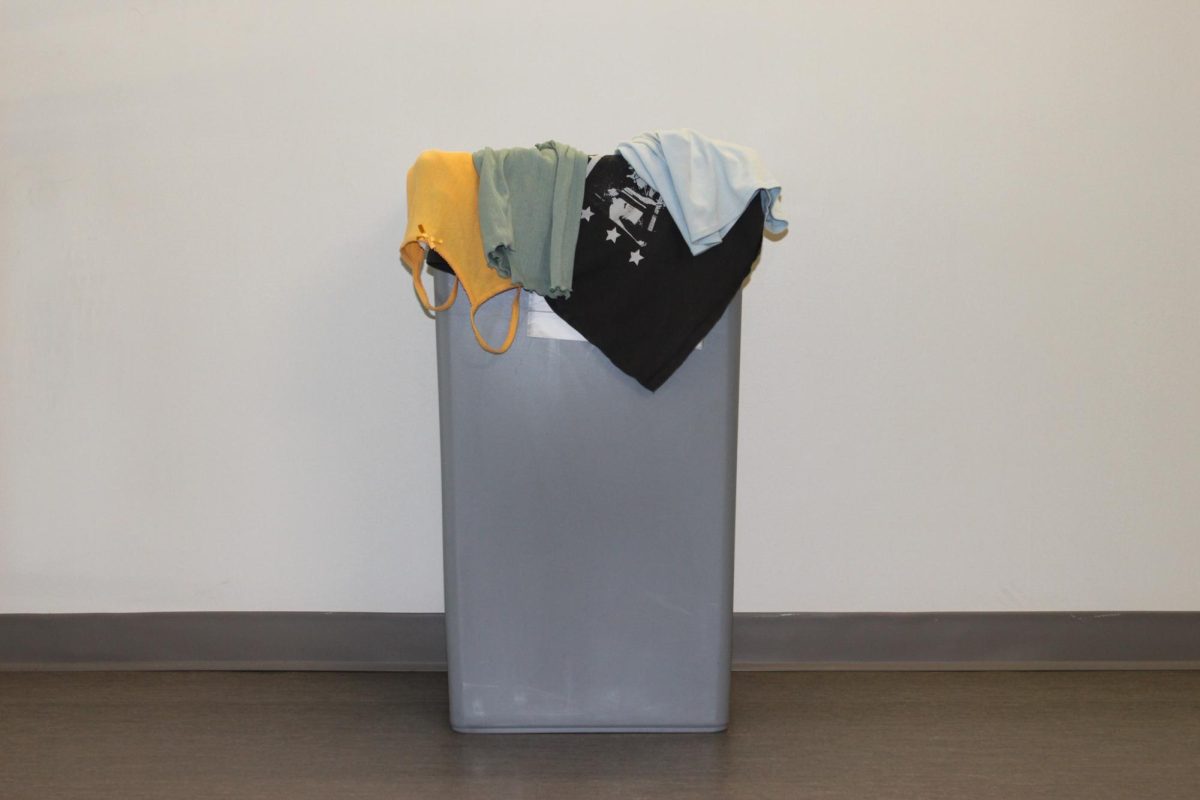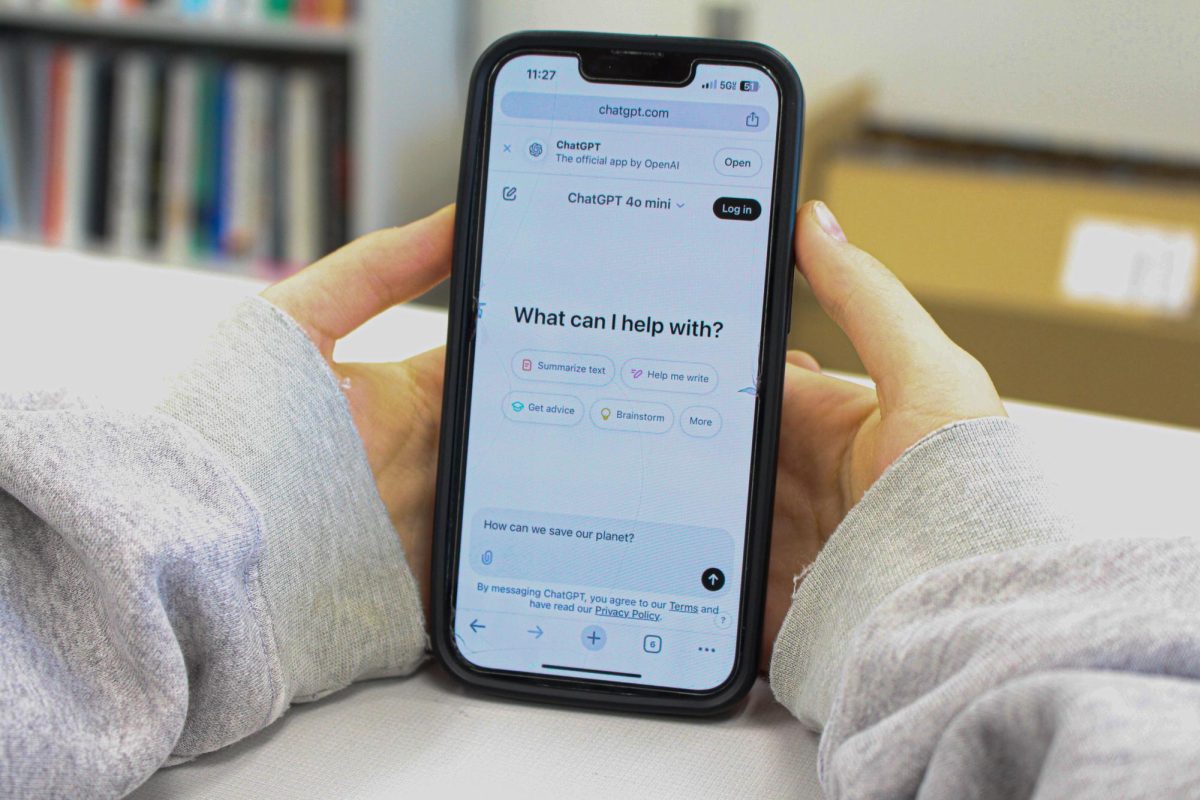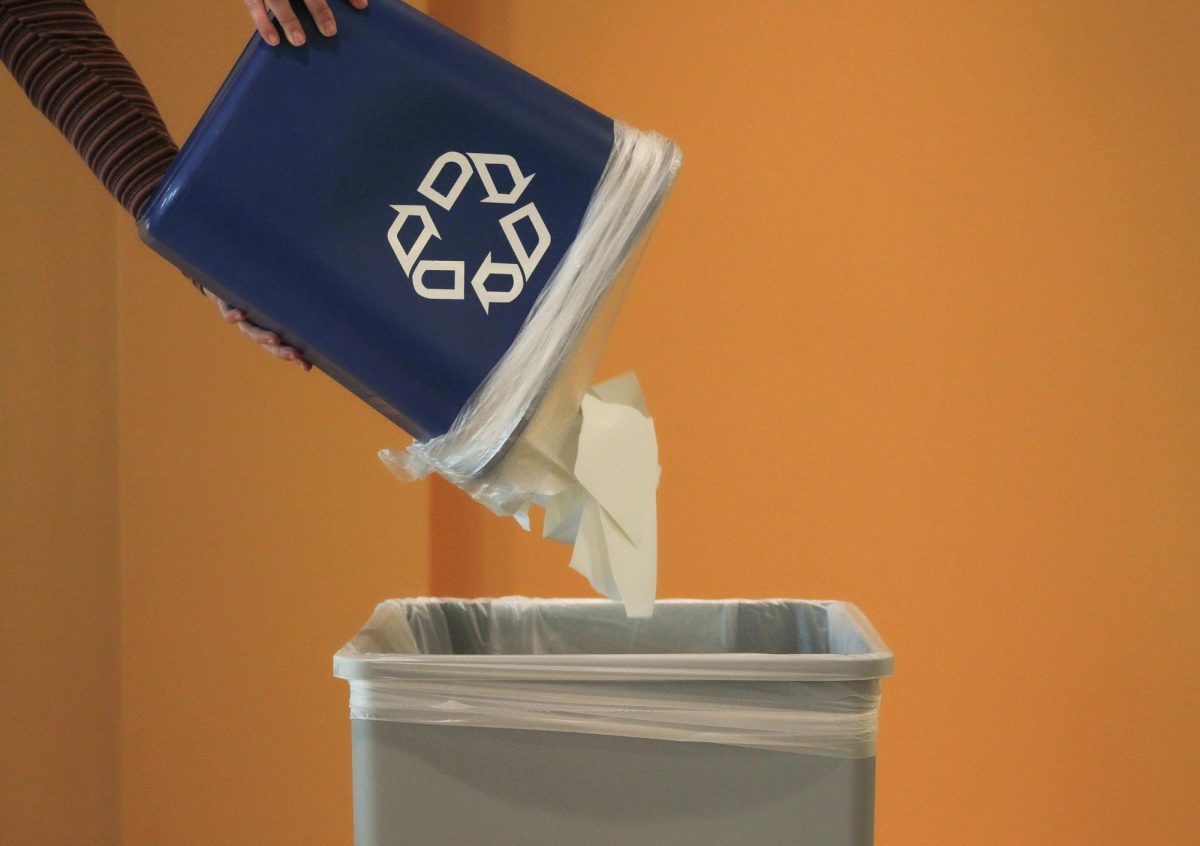When the Olathe School board created the new policy restricting device usage during class time, many students were upset.
Including me.
The policy set by the school board on Aug. 1 can be found on the Olathe Schools Website, it states part of the policy affecting high schools as follows.
“Student use at the high school level of personal electronic devices is prohibited during class time unless being utilized for instruction as directed by the teacher. Student use of personal electronic devices by high school students during non-instructional activities (i.e. lunch, passing periods, as authorized pass, etc.), is allowed.”
Hearing this new rule many students were upset about not being able to access their phone, excluding a total of one hour during passing period and lunch.
Senior Brenn Dumler shares what it was like to find out about the new cell phone policy.
“I thought it was kind of weird and not a good idea because kids are going to use their phones anyway, they’re just going to be more sneaky about it,” Dumler said. “And I was also a little bit upset because I’m a senior and it’s my last year, but I have to have a phone ban.”
As a student who had never been on her phone much during school anyway, this policy didn’t affect me too much. I was upset that I wouldn’t be able to text my friends that I didn’t have class with during down times, but that was the only real downside.
While the policy has taken some getting used to, like no more checking my phone when it buzzes in my pocket, it may be improving my work ethic during class.
Because I can’t get on my phone when I don’t have an assignment during class, I have to find a way to fill that time somehow. Working on homework for each class is a perfect way to be productive. This has made it so I usually have about half of my homework done before I’m even out of school.
Other students agree that the ban isn’t so bad, Dumler explains how the ban is different than she originally thought.
“I actually like it a little bit because my screentime has gone down a lot compared to summer and last year,” Dumler said. “And I also am a lot more focused and get more work done.”
While the restriction of phone usage may not be as bad as I had originally thought it would be, the headphone policy isn’t proving to be as helpful.
Olathe West implemented their own policy restricting the use of earbuds connected to a student’s phone. The only way to listen to music during class, with a teacher’s permission, is with wired earbuds connected to a laptop using YouTube Music.
This new policy proves to make completing classwork more difficult. I’ve always been a student that needs music to write; I absolutely cannot write in English classes unless I have both earbuds in and have music playing. It drowns out other distracting noise in the class and with them I could actually focus on my work.
Last year I could easily write an essay during class in half an hour if I had my earbuds in. This year, not being able to use them, I can barely start an essay until I get home and can listen to music.
Dumler shares the sentiments of how difficult it is to focus in classes and complete school work.
“If it’s a really loud class and I’m trying to concentrate, it’s a lot harder to do my work when I don’t have earbuds in. So I think that it definitely should be a little bit more lenient when it comes to that,” Dumler said.
Though students may be unhappy about all of these new policies, teachers are enjoying the removal of these distractions.
William Schowalter was on a committee of teachers at West last year that focused on reworking policies surrounding cell phones. He shares how he has loved the new cell phone policy this far.
“I love it. It’s the best thing ever. Selfishly, this policy is made for teachers because it used to be that me and my colleagues would spend probably like 50 percent of our days just getting kids off their phones, getting kids to pay attention,” Schowalter said.
Despite how these new policies may please teachers, are they really worth it?
Many students would probably say that they are not worth it because they want to be on their phones, though Schowalter has a reason why it is worth it.
Schowalter believes that despite how students may not love the policies, they are significantly beneficial to students.
“We [the teacher committee] looked at a lot of research from around the country, a lot of news articles and studies and stuff about the negative effects on bullying, social media, mental health impacts, academic impacts, and everything came back conclusively that cell phones are having a negative impact,” Schowalter said. “No matter how much we like them, they are having a negative impact. I was pretty stoked when I saw the district have taken some initiative and made a firm policy.”








